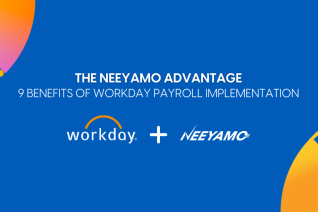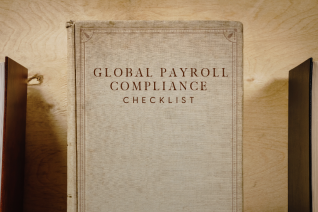Run your business seamlessly with Neeyamo as we help you go beyond borders to manage your international payroll and hire new talent in Djibouti.
Overview
Djibouti’s capital, Djibouti city, is built on coral reefs that jut into the southern entrance of the gulf; other major towns are Obock, Tadjoura, Ali Sabieh, Arta, and Dikhil.
The country’s Lilliputian aspect belies its regional and geopolitical importance.
Because of limited development in the manufacturing and industrial sectors, Djibouti is heavily reliant on the import of consumer products. Despite liberal investment laws and Djibouti’s status as a free-trade zone, high labour and energy costs, an extremely small domestic market, and regional instability have hindered the attraction of foreign investors.
Do your organization's expansion plans require hiring employees in Djibouti? If you lack a physical entity in the country – a key requisite to hiring local talent- your solution is the best HR payroll software, Neeyamo – Global Payroll Services. Neeyamo's international payroll system assists in onboarding and managing employees in Djibouti- processing payroll and payroll accounting, managing global payroll compliance requirements, benefits, and more.
Tools And Instances
Facts And Stats
Capital
Djibouti City
Currency
Djiboutian franc
Official Language
French, Arabic
Fiscal Year
1 January - 31 December
Date Format
DD/MM/YYYY
Country Calling Code
+253
Other Languages
Somali, Afar
Time Zone
East Africa Time (UTC +03:00)
Global Payroll
Overview
Handling payroll for a widespread workforce can pose as a major challenge for any firm. The added complication of compliance can make things worse and drastically affect the time and efforts that can be used in other equally important aspects of an organization's development.
Over the years, Neeyamo has observed these complexities and strived to provide a global payroll solution through a single technology platform, Neeyamo Payroll.
Payroll Taxes
Payroll tax is the percentage amount retained from an employee's salary and paid to the government to invest in the general population's welfare. These are statutory in nature and are levied from both the employer and employee. Additional statutory contributions are made by employers towards aiding both short-term and long-term benefits for their employees.
Employee Taxes
Employees must contribute 4% of their income towards Social Security.
In addition, income tax is also levied at the following rate:
| Up to 30,000 DJF | 2% |
| 30,001 to 50,000 DJF | 15% |
| 50,001 - 150,000 DJF | 18% |
| 150,001 - 600,000 DJF | 20% |
| Above 600,000 DJF | 30% |
Employer Taxes
The employer taxes in Djibouti are computed as follows:
-
The family allowance (5.5%),
-
Health and professional injuries (6.2%),
-
Retirement pension (4%) and
-
Obligatory health insurance (2%), must be made by the employer at a rate of 15.7% of the employee's total wage.
Payroll Cycle
Overview
Undoubtedly, payroll is a critical process for any organization. The pay cycle in Djibouti refers to the period for which an organization pays its employees, and this can vary depending on the pay frequency that the organization chooses to adopt.
Frequency
The frequency cycle is Monthly.
13th Month Cycle
There is no statutory requirement to pay the 13th or 14th month salary.
Global Work
Overview
An Employer of Record service provider helps you get rid of the hassle of handling the complexities that come with setting up a new employee in remote locations. They act as legal employers, facilitate salary payments, and handle everything from health insurance. payroll taxes, and employee benefits to comply with local tax laws and regulations.
This ensures that the client company can focus on the employee’s everyday tasks safely in the knowledge that they have a cost-effective solution as they continue their global expansion.
HR Mandates and Practices
Minimum wage
Djibouti does not have a national minimum wage. Instead, wages are set through collective bargaining between employers and employees.
Overtime
The employer can, after informing both workers and the labour inspector, require workers to perform overtime work, within a limit of 5 hours per week and per worker.
For part-time workers, the limit shall be reduced proportionally to the number of hours worked by the employee.
The employer can also request it when work cannot be postponed, or to prevent or respond to accidents, as well as for preparatory or complementary work needed by the company. The limit for working time - considering overtime work performed - cannot exceed 60 hours per week, nor 12 hours per day.
Data Retention Policy
Djibouti's employee data retention policy is governed by the Djibouti Labor Code. The Labor Code requires companies to keep employee data for at least five years after the employee's employment contract is terminated. Employers are obligated to keep the following types of employee data:
- Name, residence, and date of birth of the employee
- The job title and department of the individual
- The pay and wages of the employee
- The employee's working hours
- Employee advantages
- Performance appraisals for employees
- Any disciplinary history
Employers are expected to keep employee data secure and to use it only for the purposes for which it was gathered. Employers must also obtain the employee's permission before sharing employee data to third parties.
Hiring and Onboarding Requirements
Hiring
Depending on the sector and the particular role, Djibouti has a variety of hiring preferences. Employers in Djibouti do have a few common preferences, though.
Candidates with local job experience are frequently preferred for employment in Djibouti. This is so that candidates with local job experience may better understand Djiboutian business culture and the market, according to companies.
Candidates that are fluent in both French and Arabic are another typical hiring preference in Djibouti. In Djibouti, Arabic is the language of religion and culture whereas French is the language of instruction, administration, and commerce. Employers think bilingual applicants will be more effective communicators with both clients and coworkers.
Onboarding
The onboarding document requirements in Djibouti vary depending on the employer and the specific position. However, there are some general documents that employers in Djibouti typically require new hires to provide.
These documents include:
- Completed employment application form
- Copy of passport or national ID card
- Copy of birth certificate
- Copies of educational qualifications
- Copies of work experience certificates
- Medical certificate
- Police clearance certificate
Some employers in Djibouti may also require new hires to provide the following documents:
- Bank statement
- Proof of residency
- Proof of marital status
- Proof of dependents
Employers in Djibouti are required to verify the authenticity of all onboarding documents before hiring a new employee.
Probation
In indefinite contracts, probationary periods can be up to 15 days for hourly workers, one month for monthly workers, and three months for supervisors and managers. In fixed-term contracts, the probationary period can be one day per week, with one month for laborers and three months for managers.
Leave
Public Holidays
The following public holidays are observed in Djibouti:
- January 1 - New Year
- February 18 - Isra and Miraj
- April 21 - Eid al-Fitr
- April 22 - Eid al-Fitr Holiday
- May 1- Labor Day / May Day
- June 27- Arafat Day
- June 27 - Independence Day
- June 28- Eid al-Adha
- June 28- Independence Day Holiday
- June 29- Eid al-Adha Holiday
- July 19- Muharram
- September 27- Milad un Nabi (Mawlid)
Annual Leave
After one year of employment, employees are entitled to 30 days of paid yearly leave. A single part of the annual leave must be at least 12 days straight. Annual leave can be divided into two sections.
Sick Leave
Employees are allowed a total of 29 days of paid sick leave per year. Employees are entitled to 50% of their regular pay for the remaining sick leave after 29 days.
Maternity Leave
Female employees are entitled to a total of 14 weeks of paid maternity leave, which is divided into two periods of eight weeks before and six weeks following childbirth.
Paternity Leave
Fathers are granted three days of paid paternity leave each year.
Other Leave
Employees are additionally entitled to the following sorts of leave in addition to the ones mentioned above:
Birth of a child: 3 days as parental leave.
Bereavement leave: Up to 11 days per year.
Death of spouse, child, mother, father: 3 days;
Death of brother or sister: 1 day;
Death of stepmother or stepfather: 1 day;
Death of brother or sister-in-law: 1 day.
The worker is entitled to his ordinary wage.
Marriage Leave(Own or Child's): Employees are allowed to take three or one day of unpaid marital leave.
Termination
Notice Period
The Labor Code requires employers to provide one month's notice of contract termination to regular employees and laborers, and three months to supervisors, managers, and those in equivalent positions of responsibility.
Severance Pay
The damages and interest payable in the event of a contract termination without reasonable cause might range between two and six months' salary, depending on the size of the company.
Staff representatives who are terminated without the approval of the labor inspectorate are subject to special circumstances. In such circumstances, the employer must pay the equivalent of one year's income.
However, if the reason for dismissal is genuine and significant, even if the regular forms of notice are not followed, a labor tribunal may order the employer to provide compensation not exceeding one month's salary.
Visa
Overview
Foreign nationals can enter Djibouti with a variety of visas, including business visas and tourist visas.
Foreign personnel will need three documents to live and work in Djibouti:
- Visa for admission
- Permit to Reside
- Work Authorization
For foreign nationals, the Residence Permit serves as an identity card.
Foreign personnel must get an entry visa before traveling to Djibouti.
Visa requirements vary, but applicants must have a passport valid for at least six months after their intended departure date.
Passports must also contain at least two blank pages, and applicants must be yellow fever vaccinated.
The following documents are necessary to receive these permits:
- A copy of the employment contract with a Djiboutian corporation
Employee Background Checks
Legal and Background Checks
In Djibouti, employers commonly check about a candidate's career history. Depending on the company and the position, the background investigation's reach may encompass the following:
- Check for criminal records
- Workplace validation
- verification of education
- checking references
The Djiboutian National Police checks criminal histories. Verification of employment and education is done by getting in touch with the prior employer or academic institution. Reference checks are carried out by getting in touch with the applicant's references, who are ordinarily provided on the application.
Employers in Djibouti may also perform further background checks, including drug tests and physicals.
Last updated on October 11, 2023
If you have any queries or suggestions, reach out to us at irene.jones@neeyamo.com
Have Queries? Get In Touch With Us
Get in touch with one of our experts and take a quick demo of our services










